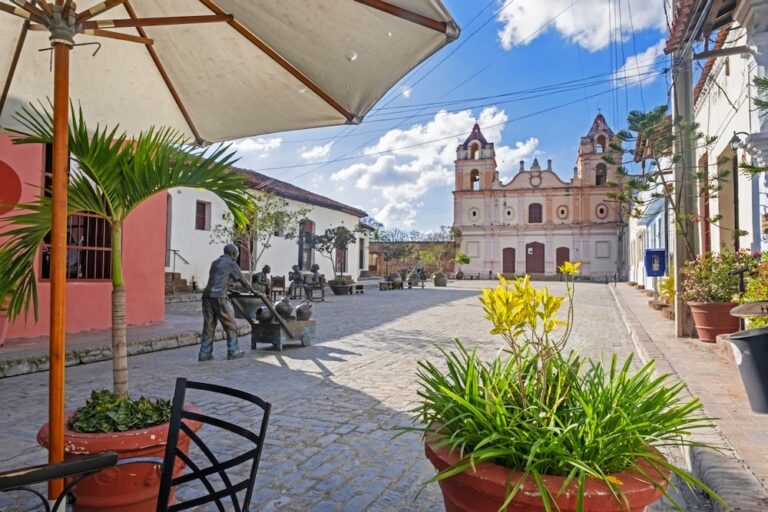Arrested in 2011 after writing articles about mismanagement of a Santiago aqueduct project and the installation of fibre-optic cable between Venezuela and Cuba, José Antonio Torres was sentenced in July to 14 years in prison and withdrawal of his university degree in journalism.
(RSF/IFEX) – 16 November 2012 – Reporters Without Borders condemns a worrying increase in harassment of dissidents in recent months, which has yet again contradicted the intentions manifested by the Cuban government when signing two United Nations human rights agreements in 2008.
Neither of these agreements – the International Covenant on Civil and Political Rights and the International Covenant on Economic, Social and Cultural Rights – has yet been ratified.
“The hopes raised by the release of the ‘Black Spring’ prisoners in 2010 are fading,” Reporters Without Borders said. “This renewed crackdown should be condemned by the international community, especially the Latin American countries, which must put human rights and freedom of information at the centre of their relations with Cuba as it seeks regional integration.”
Reporters Without Borders has also learned that José Antonio Torres, a correspondent for the government newspaper Granma in Santiago, Cuba’s second largest city, is considering the possibility of appealing against his conviction on a charge of spying, but fears that his sentence could be increased if he does.
Arrested in 2011 after writing articles about mismanagement of a Santiago aqueduct project and the installation of fibre-optic cable between Venezuela and Cuba, Torres was sentenced in July to 14 years in prison and withdrawal of his university degree in journalism.
Calixto Ramón Martínez Arias, a journalist with the independent Hablemos Press news agency, began a hunger strike six days ago in protest against conditions in Valle Grande prison, to which he was transferred on 10 November.
Arrested on 16 September after writing about a cholera and dengue epidemic before the government had issued any statement on the subject, he is facing a sentence of up to three years in prison on a charge of insulting the president.
Commenting on the case, Reporters Without Borders said: “Martínez has been detained for too long. We call on the Cuban authorities to release this journalist, who was just doing his duty to report the news.”
Hablemos Press journalists have repeatedly been the victims of threats and arbitrary detention in the course of the crackdown of the past few months.
In one of the most recent instances, Hablemos Press director Roberto de Jesus Guerra Perez was interrogated and threatened for several hours on 8 November, a week after one of the news agency’s reporters, Jaime Leygonier, was subjected to a similar ordeal.
Enyor Díaz Allen, the Hablemos Press correspondent in the eastern city of Guantánamo, was arrested on the morning of 6 November and was held for three days while all of his work equipment (a computer, two cameras and a mobile phone) were confiscated.
Eleven dissidents were arrested when they went to a Havana police station on 7 November to enquire about Yaremis Flores, a lawyer held on a charge of “crime against the state.” They included the blogger and political activist Antonio Rodiles, who is still being held and is facing a sentence of three months to a year in prison on charges of resisting the authorities.
The next day, when a second group of dissidents went to the police station to find out what had happened to their colleagues, 16 of them, including the blogger Yoani Sánchez, were arrested on charges of public disorder, “social indiscipline” and activities “deliberately orchestrated by the US authorities.”
This was Sánchez’s second arrest in two months. She and her husband, independent journalist Reynaldo Escobar, were arrested on 4 October and held for 30 hours when they went to the eastern city of Bayamo to cover the trial of Angel Carromero, a Spanish political activist accused of dangerous driving causing Cuban opposition activist Oswaldo Payá’s death in July.
The day after her first release, she wrote on Twitter: “During my detention, I refused to eat or drink any liquid. This is the first glass of water that I am having on arriving home, for an oesophagus on fire.” She also reported that she was mistreated, as a result of which one of her teeth was broken.
The Inter-American Court of Human Rights announced on 12 November that it is requesting preventive measures to guarantee the life and physical integrity of Sánchez and her relatives in response to the complaint that she brought before the court accusing the Cuban state of systematically violating her rights and freedom of movement.
Sánchez has been refused 20 foreign travel permits since 2007. On 8 November, the day of her second arrest, the Inter-American Press Association appointed her as the regional vice-chairperson for Cuba of its Press Freedom Committee.


